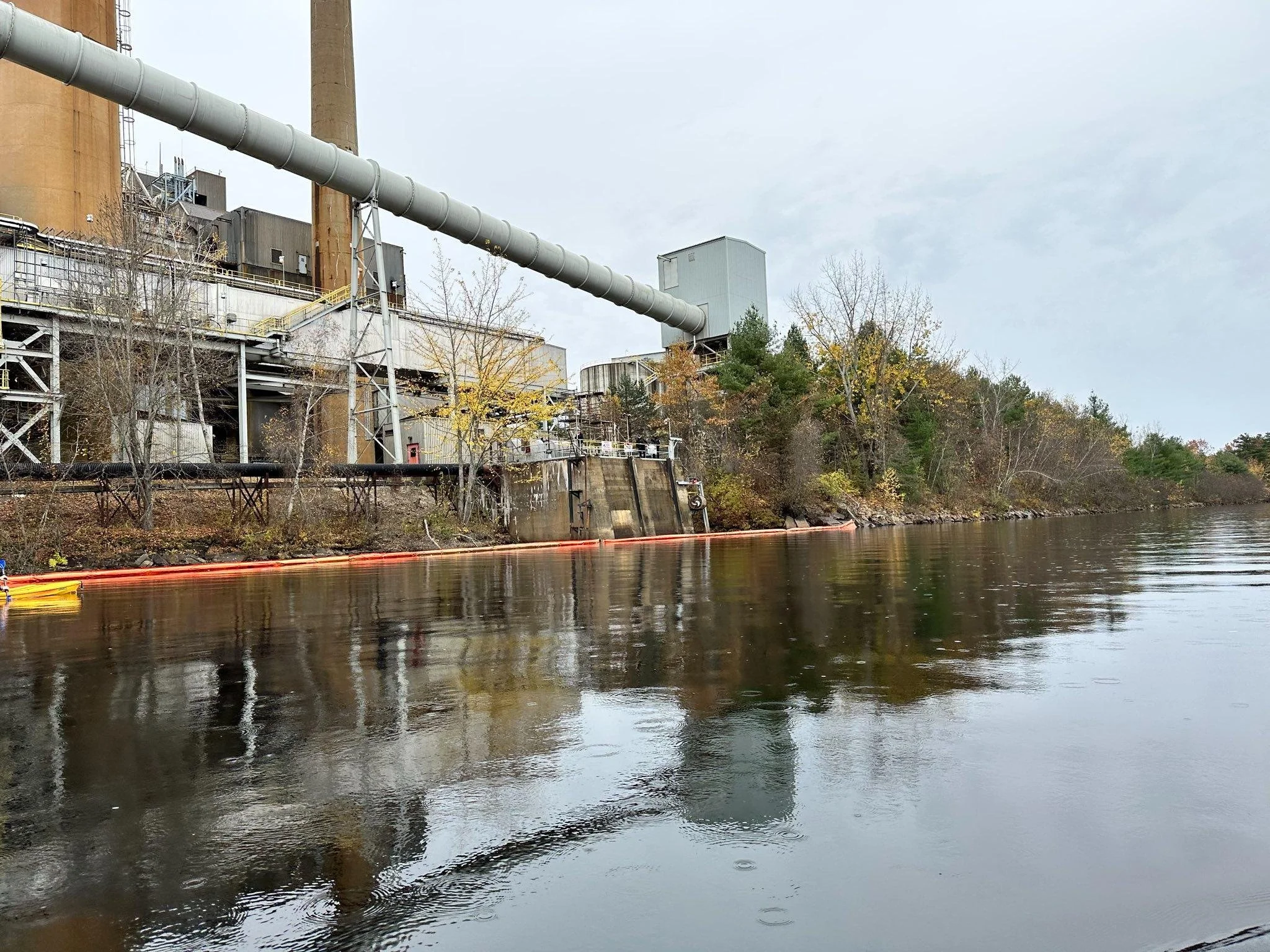Merrimack Station finally passed their pollution test 18 months after failing one, but they needed special treatment to do it. Let’s talk about what happened.
In February of 2023, Merrimack Station failed a required pollution stack test. They were 70% over the federal limit for particulate matter. Data also showed that Merrimack Station was out of compliance with air quality standards on multiple occasions in 2022 and 2023 because of elevated mercury and nitrogen oxide emissions. After failing that test (which is meant to happen once every three years), they were not supposed to be allowed to run on our electric grid until they passed the test. Now, they are required to do a stack test once per quarter when they are operating. Merrimack Station then failed to do another stack test for over a year.
In February of 2024, Granite Shore Power received an administrative order form the NH Department of Environmental Services (DES) ordering them to do the stack test within a required timeframe and report all of the maintenance that has been done in the year that they failed to complete a test. Granite Shore Power complained that DES’ statements were not all true and the issue went to court.
In March of 2024, Granite Shore Power settled in Superior Court with DES to conduct their stack test on one of their units, instead of two. They had attempted stack tests three other times before this agreement and in each of those failed tests they appeared to have equipment malfunctions or were just unable to get the plant up and running at full capacity. Their agreement required them to pay a fine of $113,835 to DES and allowed them to conduct a one-unit stack test.
July 11, 2024, Granite Shore Power finally ran that stack test with one of their two units. It took until October 2024 for the official results to be posted: they passed the test.
Passing the stack test with one of their units leads us to the question: if they are supposed to be able to supply more power than one of their units can supply on its own, what happens now? Granite Shore Power received over $1 million this month (October 2024) from FCA15 - the forward capacity auction that promised them funding in 2024-2025. That funding was meant to be given so that Merrimack Station could provide 438 megawatts of power - but they can’t do that with just one unit. MK2, the one unit they tested, can provide just 356 megawatts of power. (MK1 which was not tested can provide 122 megawatts.) Do they get to receive their forward capacity payments if they can’t meet their obligations? What kinds of fines are they going to get if they can’t meet the obligation? Why is ISO-NE letting this broken coal plant stay on the grid?
ISO-NE won’t tell us if Merrimack Station was ever called upon to generate energy but failed to. We also don’t know how much Merrimack Station has been fined, if they have. However - we know that Merrimack Station kept getting their forward capacity payments from ISO-NE the entire 18 months when they couldn’t pass a stack test. All of FCA14 and three months of FCA13 were paid up. But they were not supposed to supply energy to the grid during that time because they failed the stack test in February 2023.
All of this to say they can run on the grid again as of the passed test in July of 2024. With one unit. While receiving millions of dollars from ratepayers to be able to supply more energy than they actually can. This coal plant is getting so much special treatment! How is this the system we’re stuck with? This is just further proof that the Forward Capacity systems privilege fossil fuel over the necessary transition to renewables, and we have to figure out a better way to manage our energy supply that prioritizes people and planet.
If you are also concerned about this issue, join us at our next meeting with ISO-NE at the Consumer Liaison Group Meeting. Details are here!

